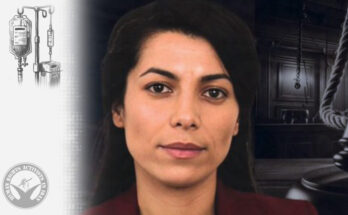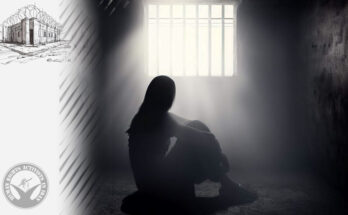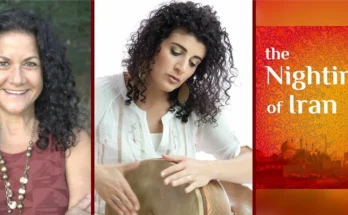Source: Iran International

Iranian police have blamed a teenage girl for defying officers in a viral video showing her being violently arrested for not wearing a mandatory hijab.
Though they admitted their actions fell short of “standards”, the social media backlash to the video was so intense that the Tehran Military Prosecutor also responded, stating that the video was meant solely for judicial purposes and should not have been released to the public.
He also said that the officers have been identified and legally summoned for their behaviour.
On Tuesday, the reformist website Ensaf News published the video which shows two unveiled teenage girls in a street in northern Tehran. A police van pulls up, and officers jump out, violently pulling the girls from the street and taking them to the van. One of the girls fervently tries to resist, but both are ultimately taken in.
The outlet noted that the video dates back to June and featured an interview with the mother of the 14-year-old girl who resisted the police. The mother described finding her daughter in a dire physical condition at the morality police detention center.
A video released by @ensafnews shows Iran’s “morality” police violently arresting and beating two teenage girls on June 21 in Tehran over hijab. The mother of one of the girls says her face and neck were bruised, her lips swollen, and her clothes torn.pic.twitter.com/E00SvTuUYG
— Iran International English (@IranIntl_En) August 6, 2024
Ensaf News, quoting the mother, reported that “the officers slammed my daughter’s head against a power box and, after forcibly placing her into the van, continued to beat her … I found my daughter with a bruised face, swollen lips, a discolored neck, torn clothes, and she could barely speak”.
“Her eyes were swollen shut from excessive crying,” she recounted.
The report also revealed that the mother had considered filing a complaint since her daughter is under legal age. However, she was discouraged by warnings that doing so would involve the security and intelligence police and would be “costly.”
The authorities also told her that two fingers of a female officer were “broken” and suggested that if she refrains from filing a complaint, they could request the officer not to press charges.
Hijab enforcers have returned to the streets of Tehran following the election period during which the Islamic Republic temporarily relaxed the enforcement of mandatory hijab, apparently to encourage more voters to cast their ballots, a photo released by @didbaniran shows. pic.twitter.com/TSJ6nemo29
— Iran International English (@IranIntl_En) July 20, 2024
Reza Shafakhah, the lawyer representing the girls, wrote on X that he informed the judge that the officers had no legal grounds to detain his client for not adhering to the compulsory hijab.
The judge replied that it was not an arrest but an “invitation to the police station for administrative purposes.” Shafakhah posted a video stating, “The video below illustrates how the officers issue these so-called invitations.”
Mohammad Aghazadeh, a seasoned journalist in Iran, also wrote on X that the behavior only “plants the seeds of hatred that can only result in rebellion and rage.”
Journalist Aida Ghajar wrote on X that the violence against the teenager “transcends the issue of women’s rights and compulsory hijab.”
She said that “it is imperative that child rights advocates and educators also engage with this matter. Nafas is, after all, a student.”
Ensaf News reported that the arrest by the police was part of the Nour Plan initiative, which started in April. Iran’s authorities have escalated physical efforts to enforce its strict hijab regulations in response to the plan, which has led to a surge in violent crackdowns targeting women on Iranian streets.
The enforcement of mandatory hijab was a significant topic in the election debates. While all presidential candidates concurred that violence is not an appropriate method for enforcing hijab regulations, it appears there has been no change in the conduct of Nour Plan officers towards women.
After Iran’s 1979 Revolution, a radical group declared women should wear the hijab, and it was Masoud Pezeshkian who was responsible for this group and violently enforced the hijab, @MinaAhadi9, a classmate of Iran’s president-elect, told @IranIntl_En.https://t.co/l8GYR6uemc pic.twitter.com/mUMYfXCD4V
— Iran International English (@IranIntl_En) July 12, 2024
In July, the acting chief of police asserted that the same policies will persist under the new government. Ahmad Vahidi, the Interior Minister of the Islamic Republic, also defended the government’s mandatory hijab policy. He reported that, over the past three years, 23,000 people have been mobilized to enforce the mandatory hijab on Iranian citizens.
This latest incident also comes nearly a month before the anniversary of Mahsa Amini’s death in police custody in 2022. Amini, 22, was arrested for allegedly wearing her hijab improperly, and her death triggered months-long protests across the country, challenging the authority of the Islamic Republic.




